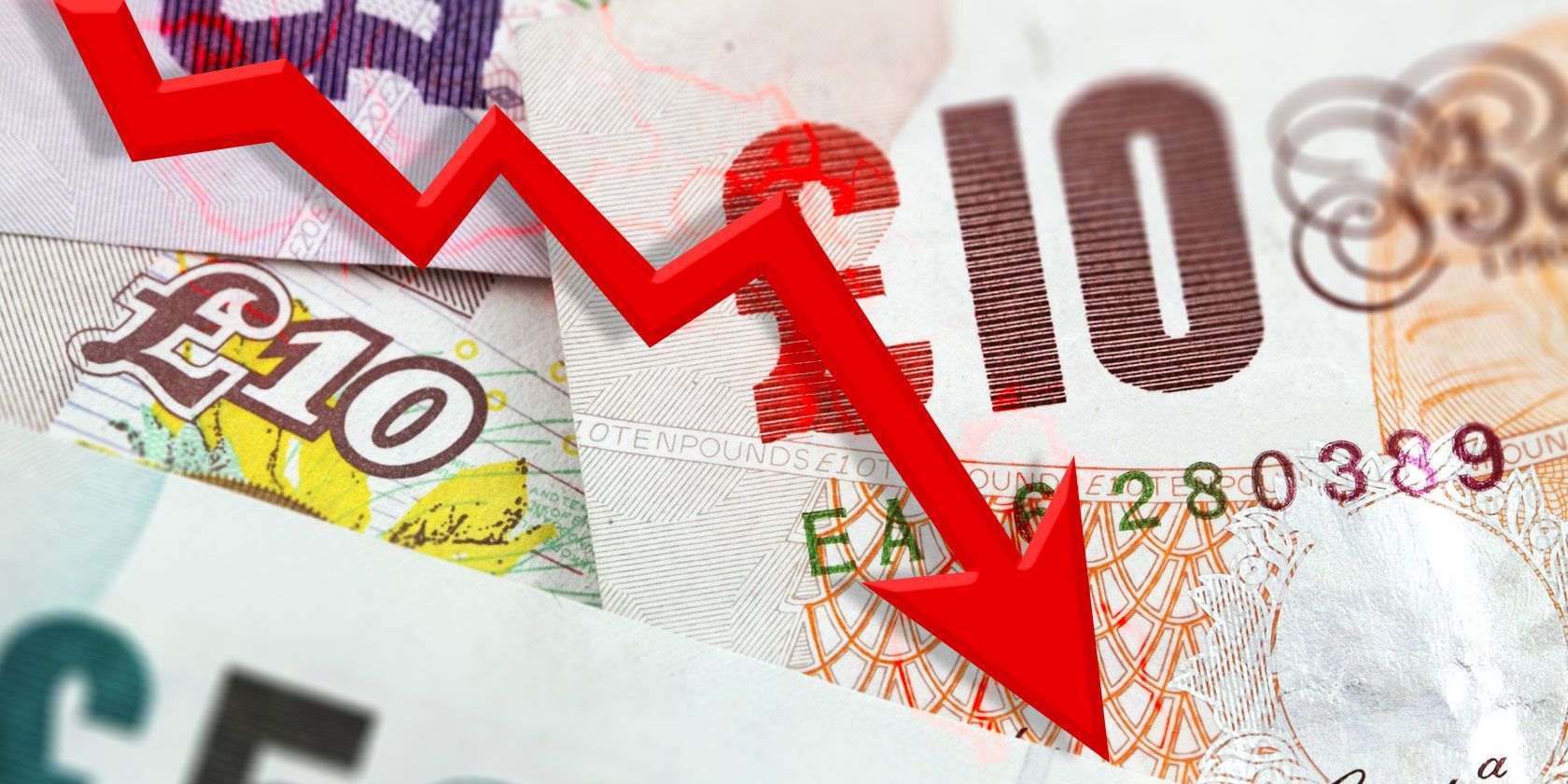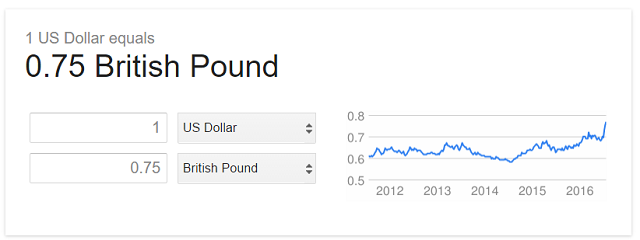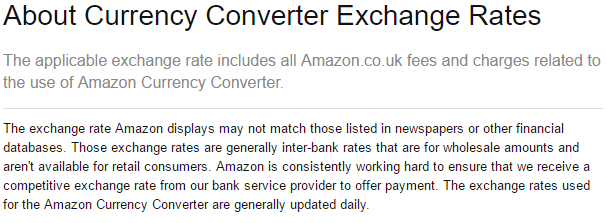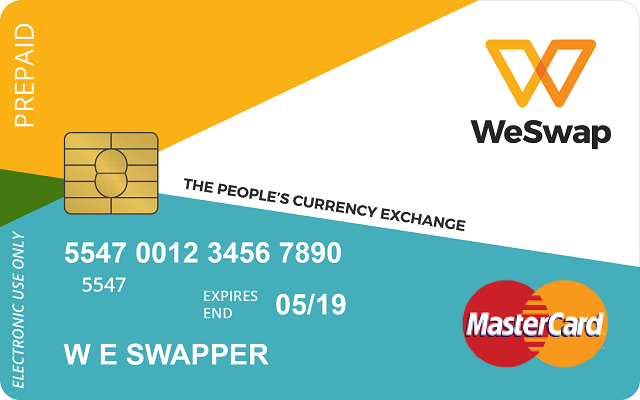Last month, the United Kingdom narrowly voted to leave the European Union in a closely fought referendum. While the long-term economic consequences of this decision remain to be seen, the ensuing instability has utterly tanked the value of the British pound (GBP).
In just a few days, the value of the GBP reached its lowest level for thirty-one years. For consumers, this has upsides and downsides. For those paying with a foreign currency, like the US dollar or the euro, shopping in the UK is effectively 15% cheaper. But if you've got British pounds, things are inevitably about to become very expensive.
Whenever a big currency swing like this happens, people start looking for ways to capitalize on it -- if they're outside of the country whose currency has dropped -- or minimize the damage if they are. We've found a few sites and services that'll help you, no matter where you're based. If you know of any others, share them in the comments!
Finding Bargains Post-Brexit
Consumer electronics in the UK have typically been more expensive than those sold in the United States. This is a consequence of a number of factors, not least the high duties levied on imported goods from outside the European Union and the steep 20% sales tax called VAT (Value Added Tax). VAT is charged on most goods, with the exception of essential foodstuffs, baby clothes, and books.
Historically, Brits have used American shopping sites and mail forwarding services to avoid the high costs of shopping domestically.
This trend has reversed as a result of Brexit. It's no coincidence that in the days that followed the referendum, Twitter was abuzz with people claiming to have switched their Steam region or App Store location to the UK, and boasting about the bargains they've found on Amazon.
Rough translation of the above tweet: The pound is in free-fall. It's time to go shopping on Amazon.co.uk.
These discounts will be short-lived, as the cost of consumer goods will eventually inflate to take into account the weaker British pound. But until that happens, bargains abound.
When you buy something from amazon.co.uk (or, for that matter, any international Amazon store), make sure you pay in pounds sterling, or whatever the local currency is, in order to get the best rate. The converted exchange rate offered by Amazon is terrible. They say this on their FAQ page:
It's also recommended you use a credit card that doesn't charge any fees for international transactions.
In addition, it's worth emphasizing that when you shop online, there's a chance that import taxes and duties will be levied. There's not much that can be done, other than hope your package isn't one of the ones that get queried. Either way, you should factor in this risk whenever you purchase a physical good online.
Obviously, this isn't the case for digital goods bought from the Steam and iTunes stores while masquerading as someone in the United Kingdom.
How to Get Your Hands On Dollars or Euros
Before the Brexit referendum, there were reports of long queues emerging outside of currency exchanges. Many people were worried that a leave vote would make their vacations more expensive, and wanted to get their hands on as many dollars and euros as possible.
Almost three weeks later, the question is no longer "will the value of the pound collapse?", but rather "how low will it go?" It seems conceivable that the worst has passed, especially given the slight appreciation in the pound, but there's really no way to tell. We'll just have to wait and see.
But some analysts think that the pound could eventually reach parity with -- that means be equal in value to -- the US dollar. That's unprecedented.
If you're feeling less than confident about the pound's prospects, you're going to want to exchange it for another currency as soon as possible. Unfortunately, high-street currency exchanges are widely understood to be massive rip-offs. Many banks offer foreign-currency denominated accounts, but these often require sizable deposits and come with high fees.
There's a better way. A London-based financial technology startup called WeSwap allows you to exchange currencies at the mid-market exchange rates, taking only 1.4% for themselves. To make things even easier, they also throw in a free WeSwap branded MasterCard Debit card, which can be used online, at point-of-sales, and to withdraw money at ATMs. We've covered WeSwap at MakeUseOf previously.
I phoned WeSwap's UK-based helpline and pretended to be a prospective customer. I explained that in light of the referendum, I wanted to hold a balance in US dollars. Would WeSwap be able to help me?
" Absolutely."
I got the feeling that I wasn't the first person to ask that question. The gentleman on the other end of the line walked me through the process required to sign up, how much I'd be able to deposit in one go (£3000), how much I'd be able to deposit in a year (an astonishing £12,000), and how much of a balance I'd be able to carry.
In the light of the impending rising cost of goods in the UK, I wanted to know if I'd be able to use WeSwap to purchase things online. One of the major advantages of WeSwap is that it doesn't charge a fee to make purchases online.
"Well, yes -- but I don't recommend it. WeSwap doesn't support 3-D Secure."
3-D Secure is MasterCard's proprietary security technology which adds an extra layer of authentication to online transactions. When you buy something online, it will prompt you to provide three characters from a password of your own creation. If you don't know the password, the transaction will be refused.
There are other situations where it might not be ideal to use WeSwap. The company recommends that users don't use the cards to make deposits at hotels (a major frustration of mine), to pay for gasoline at unmanned pumps, or to pay at toll booths.
But if consumers are willing to swallow this, as well as a small fee, WeSwap represents the easiest, cheapest, and most convenient way to get your hands on dollars and euros.
How Brexit Will Raise the Cost of Electronics for British Consumers
Overwhelmingly, most consumer electronics are made abroad -- either in China or, to a lesser extent, the United States. Due to the collapse of the pound, device manufacturers have had to increase their prices in the UK. The most recent vendor to do this is HP, which has raised prices across the board by 10%, with Dell and One Plus One having made similar moves.
Since 2012, the Raspbery Pi Foundation has produced the iconic credit card-sized computers in a factory owned by Sony in Bridgend, Wales. The result of the referendum has put the foundation in an interesting position, and I talked to founder Ebon Upton about it.
"The Raspberry Pi is priced in dollars, and most of the components we buy are priced in dollars, but our labor costs are in sterling."
As a consequence of this, Upton said he can conceivably see price rises for UK consumers, although he was eager to stress that this wouldn't happen overnight.
"UK customers could see price rises, but these things take time. Because orders have to be made in advance, there will be a delay before change in price."
I asked Upton if the Raspberry Pi Foundation had a position on whether the UK should leave the EU or not. He said it hadn't, but he was eager to suggest that the referendum wouldn't have any impact on the day-to-day running of the foundation.
"Our largest markets are the US (which isn't in the EU), the UK, and Germany in that order. The outcome of the referendum won't have any impact on our educational efforts. We're not that worried."
What Does Brexit Mean for Your Money?
If Brexit could be summed up in one word, it would be "uncertainty." It's hard to tell what's going to happen from week to week, much less years into the future. This uncertainty has had a depreciating effect on the British currency. Depending on who you ask, that's either a very good thing or a very bad thing.
For those in the UK, it has resulted in more expensive imports. A laptop that cost £1000 the previous month could now very easily cost £1100. For those outside the UK, it has meant that there are previously unavailable bargains to be found, especially in digital services. Whether this will remain the case in the coming months remains is guess.
Have you taken advantage of any UK-based deals since Brexit? Have you noticed prices going up on electronics in the UK? Or do you think this will all blow over quickly without making an appreciable difference? Share your thoughts in the comments below!




